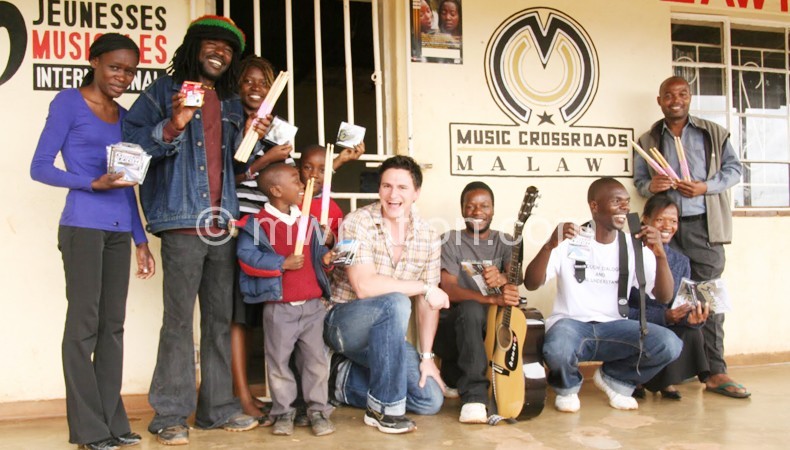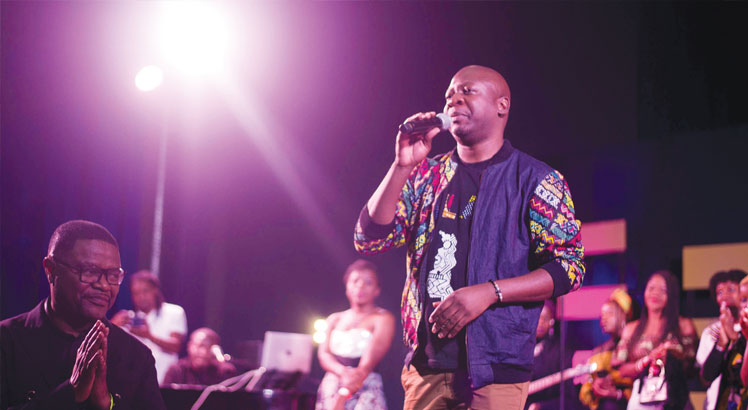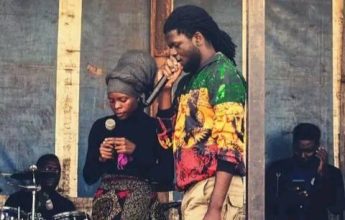Music Crossroads Malawi lays ground for musicians
Over the years, Malawi has seen it all in the music industry. Scores of artists have come and gone. However, while in other countries there are music schools or trainings aimed at empowering young musicians, that component has been missing in Malawi.
For starters, almost all the musicians that Malawi boasts of have never gone through the corridors of music training.
 They have excelled and made a name for themselves through their inborn talent.
They have excelled and made a name for themselves through their inborn talent.
But in recent years, one organisation has brought enormous change, running several projects and programmes that have significantly changed the local music terrain.
People have and continue to know Malawi as a country that does good music, if the accolades that have cone because Malawi Music Crossroads (MCM) are anything to go by.
The MCM programme is a youth empowerment initiative through music, introduced in Malawi in 2000 through government in the department of arts and crafts.
It became a registered non-governmental organisation in 2007 and began running independent operations. Since its establishment in Malawi, the Music Crossroads programme has been running annual festivals and competitions at both national and international levels.
As a youth training center, MCM, under the leadership of Gayighayi Matthews Mfune, is home to many projects and young artists.
“The training center provides a facility and resources that young musicians can access to for practice and training at a small fee. Some well-known artists such as Skeffa Chimoto, Lulu, Sally Nyundo, Wendy Harawa and Dan ‘Sirius’ Kalima have gone through Music Crossroads and this has, in one way or the other, shaped their music careers.
“We are committed to improving the quality of music in Malawi, by providing opportunities for development for young people, and provision of quality resources,” explained Mfune in an interview.
The first project of MCM was the Music Crossroads competition where local bands were competing to find a representative in an international contest.
Apart from Malawi in Southern Africa the program was also in Mozambique, Zimbabwe, Zambia and Tanzania.
“These are called regions, and after competitions had been run in the different regions of the country, the winners would come together at what was called ‘interregional level’ where they competed with winners from other Music Crossroads countries and the final winner would win a tour of a Europe.
“Several bands from Malawi have emerged as winners of the interregional festivals including Tikhu Vibrations in 2000, Konga Vibes in 2007 and Konkalazi Band in 2012,” explained Mfune.
Over the years, the Music Crossroads has expanded its perspective and included other programs. And now, the focus is music education.
Said the director: “The festivals ceased, largely due to lack of funding organisations, but also because the focus shifted from festivals to music education. The reasoning was that as profitable as the festivals were, their results were short-lived.
“There was a proposal to introduce music education in the crossroads programs to give people something permanent and something that would develop the individual performer. Hence the academy project was born and realised in 2013, which is aimed at teaching professionalism in music performance in young talented musicians. The first graduates in Malawi were produced in March 2014, where 14 young musicians were given their international music certificates,” he said.
Currently, Music Crossroads Malawi has several projects running with different partners, both local and international.
The Young in Prison project is a Netherlands based project which is running in Malawi, South Africa, Colombia and the Netherlands. In Malawi, YIP was introduced in 2009 and it works with three prisons namely Kachere Reformatory Centre, Byanzi Reformatory Centre and Mzuzu Prison.
“The prison uses facilitators who visit the prisons twice every week, teaching them different creative skills like playing instruments, singing, art, tailoring and fishnet making. Funded by the European Union, YiP has recently taken on a new scope of work, and is now giving certificates to graduating inmates at different levels or phases,” affirmed Mfune.
Another project is called MOVE, a musical and cultural youth exchange program between Music Crossroads Malawi and Musikk og Ungdom under Fredskorpset (FK) Norway. The yearly project began in 2012 with just two participants from either country staying at the other for three months.
“It expanded in 2013, with six participants from each country visiting the other and staying there for a longer time of up to nine months.
This project receives generous funding from the Norwegian government, resulting in a great partnership between the embassy in Lilongwe and ourselves,” he explained.
As MCM continues to broaden its horizons, the other program it is working on is the Chance for Change. The organisation works with underprivileged young people and school dropouts in Lilongwe and teaching them entrepreneurial and other life skills.
“Fondly called C4C, the project uses facilitators who work with these young people, inspiring them and teaching to be dependent on themselves through small scale innovations and businesses. Chance for Change is a Scotland funded project.
“And then we have the Music Education project, which works in partnership with Petits Musics del Mon in Spain, under different programmes. In Malawi, the Music Education project is active in three areas: the Hear Us children, the Model Choir and music theory classes,” said Mfune.
Mfune says the organisation “is still growing, taking on as many projects as possible to improve the lives of young people in Malawi and empower them.





